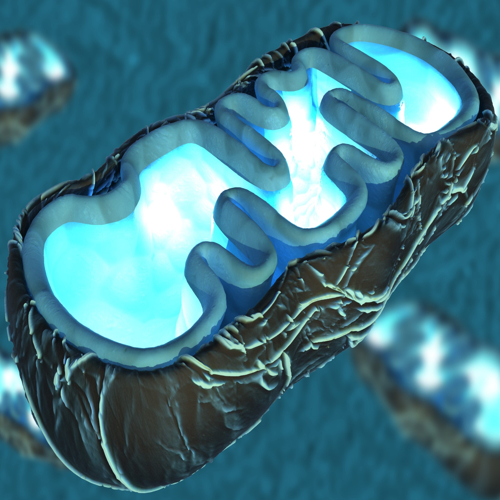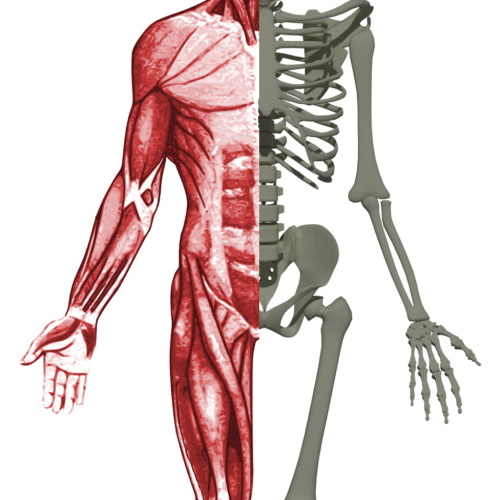Mitochondria, often described as the powerhouses of our cells, are essential organelles responsible for producing the energy that powers nearly every cell in our bodies. But their role extends far beyond just energy production. Mitochondria are deeply involved in a host of critical cellular processes, including how cells respond to stress, how they control the balance of destructive molecules (free radicals), and even how they signal to each other.
As we age, the function of mitochondria tends to decline, leading to decreased energy production and increased vulnerability to cellular damage. This decline is closely linked to a condition known as sarcopenia, which is characterised by the loss of muscle mass and strength, a common issue that affects many older adults.
Revitalising Ageing Muscles Through Lifestyle Interventions
The battle against muscle ageing is fought on several fronts, with lifestyle choices at the forefront. Exercise, diet, and exposure to certain environmental conditions like hypoxia (low oxygen levels) can stimulate mitochondrial adaptations beneficial for muscle health.
Exercise: A Fountain of Youth for Mitochondria
Regular exercise makes them bigger and better at using oxygen, just like adding more batteries and improving their efficiency. Different types of exercise help in different ways:
- Running and swimming make your mitochondria better at using oxygen for long activities.
- Weight training packs more mitochondria into each muscle, increasing overall energy.
- Short bursts of intense exercise (HIIT) train your body to use energy more efficiently, especially as you age.
Exercise also creates new mitochondria, replacing old ones and keeping your energy levels high. It even cleans up your cells by removing damaged mitochondria, just like replacing old batteries.
Diet: Nourishing the Mitochondrial Garden
Within the intricate landscape of human health, diet plays a crucial role beyond mere sustenance. It becomes the foundation for nurturing a delicate ecosystem within our bodies, often likened to a "Mitochondrial Garden." Just as a garden flourishes when provided with optimal conditions, our mitochondria, the tiny powerhouses within our cells, thrive when nourished with the right nutrients and dietary choices. This metaphor emphasises the profound impact of nutrition on cellular function and overall well-being.
Through mindful dietary practices, we cultivate an environment conducive to mitochondrial health. Antioxidant-rich foods, essential vitamins, and minerals provide the necessary building blocks for these powerhouses to function optimally. This, in turn, fosters energy production, cellular repair, and resilience against oxidative stress, the damaging effects of free radicals.
The synergy between diet and mitochondrial function underscores a holistic approach to health. It highlights the profound connection between the foods we consume and the vitality we experience. By tending to our "Mitochondrial Garden" through wholesome nutrition and lifestyle choices, we embark on a journey towards a multitude of benefits. These include increased energy levels, enhanced cellular repair mechanisms, improved resistance to age-related diseases, and ultimately, a path towards optimal health and longevity.
Breathing Less to Live Longer
Though it might seem strange, intentionally reducing oxygen intake (hypoxia) can actually benefit ageing cells. Controlled exposure to lower oxygen levels acts as a training stimulus, prompting adaptations that improve cellular processes.
When faced with less oxygen, our bodies adjust to keep producing energy. This triggers various responses, especially in mitochondria, the cell's powerhouses. Key genes activate, boosting oxygen use efficiency and creating new mitochondria, allowing cells to generate more energy even with limited oxygen.
Hypoxia also stimulates the production of erythropoietin (EPO), a hormone that increases red blood cells, enhancing oxygen delivery throughout the body, including muscles. This can lead to better stamina and endurance, often declining with age.
Furthermore, hypoxia triggers cellular responses that reduce inflammation and oxidative stress, both linked to ageing and diseases. By improving the body's ability to manage these threats, hypoxia conditioning might slow down aspects of ageing at the cellular level, promoting better health and function.
This has led to the development of hypoxia training, where individuals exercise in low-oxygen environments like altitude chambers. This combines the benefits of exercise with hypoxia adaptations, offering a powerful approach, particularly for older adults looking to maintain or improve their physical and cellular health.
So, while taking it easy and breathing freely might sound good, controlled periods of breathing less could actually empower your cells and contribute to a healthier body.
Toward a Future of Healthy Ageing: A Mito-Centric View
Mitochondria not only fuel our bodies, but regulate vital functions like energy production and defense. This "mito-centric" view reveals a promising path: ageing's decline might not be inevitable. Targeted lifestyle choices could even slow it down or even reverse it.
Mitochondria are remarkably adaptable, responding to our environment and habits. This means our daily choices - how we move, eat, and even the places we go - directly affect them. Supporting mitochondrial health through lifestyle changes could be key to maintaining physical strength, energy, and overall well-being as we age.
Regular exercise strengthens and multiplies mitochondria, boosting their efficiency. A balanced diet rich in nutrients nourishes and protects them. Even brief exposures to lower oxygen (hypoxia) can trigger positive cellular responses that enhance resilience.
Our daily habits can shape our ageing journey. By supporting our mitochondria, we can empower ourselves to live stronger, healthier lives for longer.
Acknowledgments
This article is based on the insights from the paper "A mito-centric view on muscle aging and function", published in Frontiers in Public Health. The research was conducted at the Institute of Sport Sciences, University of Lausanne, Switzerland, among other institutions.







